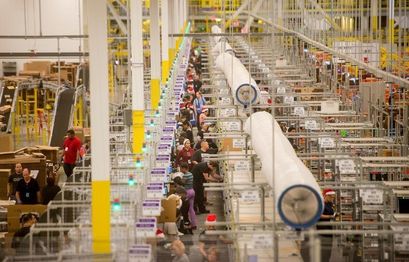This year, the line between Fin-tech and Big Tech became even more blurry.
From the point of view of consumers, Big Tech companies like PayPal, Amazon and Apple now function as financial providers. They offer tech-enabled credit products, payment solutions, and virtual balances that behave like accounts.
But these innovations are mostly enhanced user experiences. Credit has never really been Big Tech’s core competency.
So that begs the question: Can Big Tech companies help revolutionize FinTech beyond user experience?
In 2018, the answer may well be “yes.” But they’ll do it by collaborating with credit-first platforms. Big Tech needs partnerships that fill in their balance-sheet lending capacity and credit-assessment gaps before they can bring innovative credit products to their mass-market customers.
PayCash, Apple’s new money transfer solution, suggests how this can work. Apple Pay leveraged its relationship with Greendot, a prepaid card issuer that is also one of Apple Pay’s regulated bank partners, to create the product. This type of joint effort between Big Tech and FinTech will breed innovation and create value for the market.
Next year will usher in Credit-First FinTech Platforms. Big Tech has an important role to play, particularly in three key areas:
Prioritizing credit performance
Right now, a borrower with a 700+ FICO score, considered a Prime borrower, already has access to financial solutions offered via Big Tech channels, like Apple, PayPal and Amazon. But for everyone below the “Prime”, access isn’t as easy. That’s because these companies’ ability to provide access to credit is only as robust as the expertise that their partners bring. Big Tech and innovative smaller financial companies will work together to open access to credit to a larger population of borrowers. Partners that have a credit-first approach – like balance sheet lenders that favour sound credit assessment over aggressive customer acquisition – will play an important role in bridging those worlds.
Integrating digital financial solutions
Credit-First FinTech Platforms will allow consumers access to credit products and payments solutions, and also empower merchants with the ability to generate new revenue. I believe this will ultimately have a favourable impact on the economy by helping both the supply and the demand side tap into their full potential.
Offering point of need credit
As industries like healthcare, insurance, retirement savings, and retail continue to undergo sweeping changes, it makes sense that how we pay for goods and services will evolve as well. Products that offer credit at the point of need will solve consumer pain points.
In 2018, Big Tech will play an important role in delivering on the promise of FinTech. By integrating Big Tech closely with lending companies built on credit-first models, we can bring to life the right products that expand financial inclusion, meet a critical need in the market, and help borrowers to lead better, more responsible financial lives.









